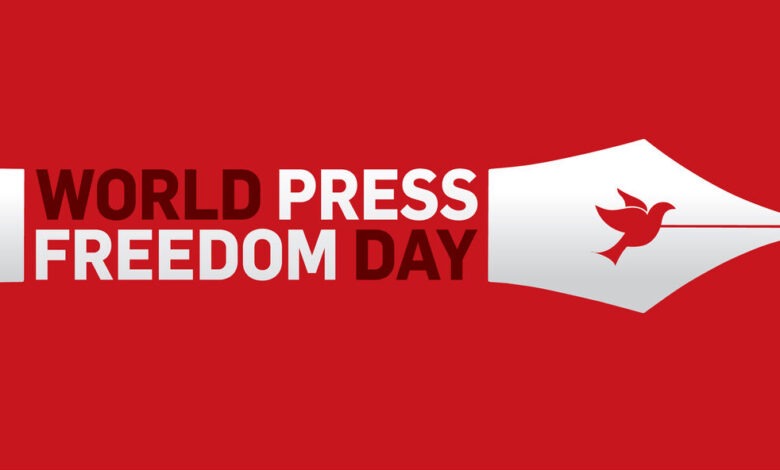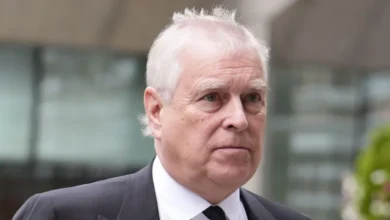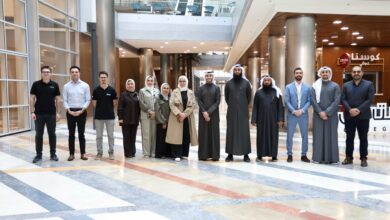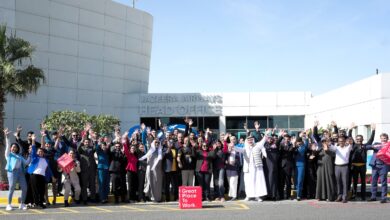Press freedom vital to vibrant democracies

World Press Freedom Day observed each year on 3 May is an opportunity to raise awareness on the need for media freedom, access to information and the unfettered dissemination of news and views. The day also highlights the role of independent, free and ethical journalism, in building, promoting, and sustaining democratic societies around the world.
Freedom of expression is a fundamental human right. Article 19 of the Universal Declaration of Human Rights states: “Everyone has the right to freedom of opinion and expression; this right includes freedom to hold opinions without interference and to seek, receive and impart information and ideas through any media and regardless of frontiers.”
Ethical journalism and freedom of expression help empower people to make informed choices, and gain greater control of their lives, through social and political processes. According to the United Nations Educational, Scientific and Cultural Organization (UNESCO), freedom of expression is realized when there is a legal and regulatory environment to facilitate the emergence of an open and pluralistic media sector, as well as the political will to support it, and rule of law to protect it.,
Kuwait currently does not have an integrated media law. Plans by the government to introduce one in August 2023 were shelved following opposition from lawmakers and criticism from large sections of the public. The draft media law had proposed to streamline existing media regulations — Press and Publishing Law, the Electronic Publishing Law, and the Audio-Visual Law — into an integrated media law.
The draft law included, among others, regulating prohibitions and penalties across all media outlets; limiting penalties to the perpetrator of the violation; canceling referral to any other law, and removing the penalty of revoking the license and closing down establishments that violate regulations. However, lawmakers said that the information ministry was attempting to play the role of the judiciary by introducing restrictions and deciding penalties on its own.
Critics of the law said rather than introduce new media regulatory laws, the government should focus on expanding existing media freedoms. Moreover, they pointed out that articles in the new draft law were not only in violation of the constitutional rights of citizens, but also did not conform to the needs of society and individuals, and were not consistent with prevailing developments in global media space.
While the Press and Publishing Law regulates print media, Kuwait’s online media space is currently regulated by Law No. 8 of 2016. Under the Electronic Publishing Law, online media outlets need an operating license, and are prohibited from publishing content that incite violence or sectarian strife, undermine national security, or is considered defamatory, blasphemous, or violates public morals The law has been criticized by many for restricting freedom of expression.
For its part, the government contended that the law aims to balance freedom of expression with national security and public order, and that the law works to promote freedom of expression whilst also ensuring unhindered access to information. It also seeks to eliminate any potential impediments to sharing information on online media, provided it conserves national values and interests.
On a related vein, in early October 2023, the Communication and Information Technology Regulatory Authority (CITRA), which regulates internet services and technologies in Kuwait, decided to scrap its tender for developing the Kuwait International electronic portal that it had floated earlier. The decision followed outcry from the public and by legislators who said that it was aimed at monitoring internet activities of users in Kuwait, and restricting their online freedom.
The strong response by citizens and legislators to any attempts to restrict freedom to access the internet or on freedom of expression is understandable, considering that independent media and freedom of expression are deeply entrenched and constitutionally safeguarded concepts in Kuwait. Moreover, the country’s pervasive mobile internet usage — over 6.5 million mobile subscriptions in a population of less than 4.8 million people — precludes any attempt to curb online interactions.
However, the proliferation of news and opinions through online media platforms and the rapid uptake of these portals among the public, has led to the widespread dissemination of disinformation and misinformation on various issues. The spew of misleading and false information on issues affecting society often undermines public and political support for effective policies aimed at tackling them.
Addressing false narratives requires the public to be provided with access to accurate information in a timely manner. According to UNESCO, besides curbing misinformation, laws that ensure access to information, are key to enhancing transparency, reducing chances for corruption, and enabling accountability in the public domain. They are essential for the promotion of human rights, and conducive to achieving the sustainable development goals.
Kuwait enacted its historic Right to Information Law in 2020. Published in the official gazette in September 2020, Law 12 of 2020 entered into force six months later in March 2021. The law was part of the country’s efforts to implement the Kuwait Integrity and Anti-Corruption Strategy (KIACS), which was developed with UN support. It is also in line with Article 10 of the UN Convention Against Corruption, to which Kuwait has been a party since 2007.
Nonetheless, effectiveness of an access to information law depends on the capacity to enforce it. As is the case with similar legal frameworks in the past, the challenge ahead is to implement the law effectively. A statement issued on the occasion by Kuwait Anti-Corruption Authority, Nazaha, said that the law represented “a new building block in preventing corruption, and strengthening transparency and integrity in the public sector.”
Right to information and the transparency it promotes, has a direct consequence on fighting corruption, which in turn has a tangible impact on development. Local and international agencies, including UN entities, have identified government corruption as the primary hindrance to a nation’s development. They also see an independent media sector as the number one tool to fight public corruption.
Independent, free and pluralistic media are central to good governance in democracies, as they help ensure transparency, accountability and the rule of law;
Promote participation in public and political discourse, and contribute to sustainable, inclusive growth. An independent media sector draws its power from the community it serves, and in turn it empowers the community to be a full productive partner in the democratic process.
However, integrity of a pluralistic media environment is dependent on a public endowed with the necessary media literacy skills to critically analyze and synthesize the information they receive, use it productively in their daily lives, and hold the media accountable for its narrative. A public empowered by critical thinking competencies and media literacy can maximize the advantages and minimize damages arising from today’s online and off-line media information landscape.
Ethical journalism and freedom of expression are fundamental in protecting human rights, consolidating democratic processes and ensuring sustainable and equitable development. Nevertheless, journalism remains a dangerous and too often deadly profession to practice. According to the UNESCO’s Observatory of Killed Journalists, more than 1,600 journalists have been killed since 1993. — and nine times out of ten, their murder has remained unresolved.
Other threats against journalists continue to grow, especially in non-conflict zones. Journalist imprisonments are at a record high, while online violence and harassment, in particular against women journalists, continue unabated. Today’s scenario of targeting the messanger for the message needs to end — it needs to stop for the sake of the journalists and their families involved, as well as for a better world where everyone’s voice contributes to enriching the diversity of perspectives.












